Jacky McLaren spent 10 years working as a teacher in Brunei, but it's her experiences outside the classroom that are having a lasting impact.
She became deeply involved with the Penan, a semi-nomadic tribe in Borneo whose way of life has been disrupted by deforestation and palm oil plantations.
McLaren encouraged them to trade goods - and that continued when she returned to New Zealand when she established Borneo Bags, which sells handwoven products from Penan women, helping support them and their families.
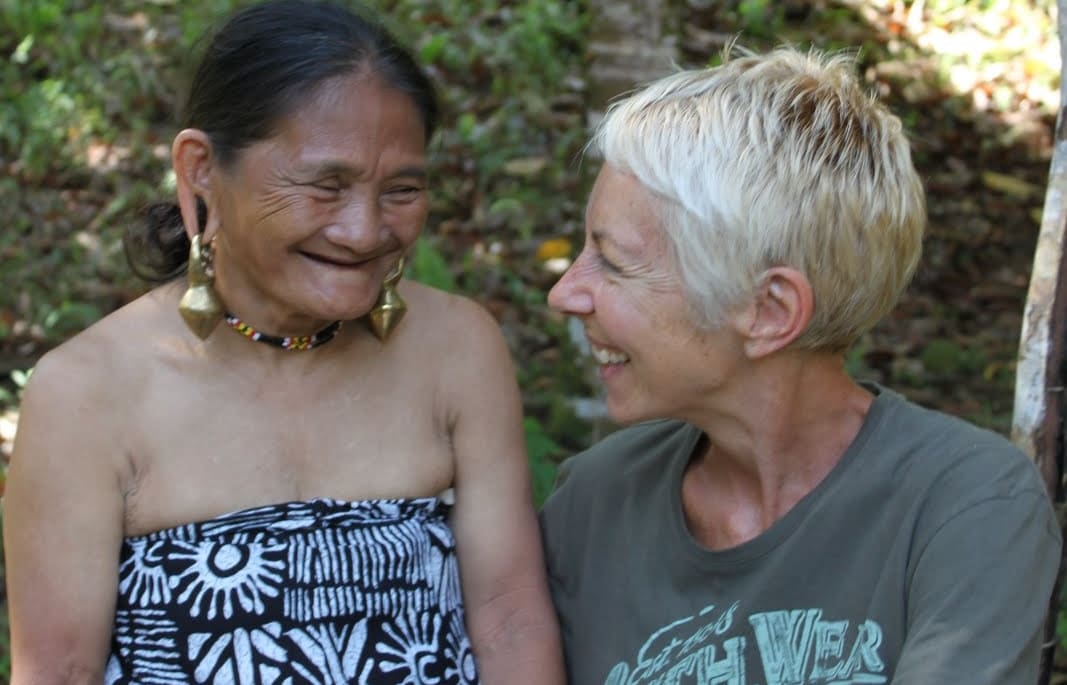
Jacky McLaren frequently visited and supported the Penan tribe while teaching in Brunei. Photo: Supplied
The school where she taught held an annual fundraiser where experiences were auctioned off, including one which was to visit the Penan tribe.
“We didn’t actually go for another year or so, there was a lot of planning to be done,” McLaren says.
Trekking through the forest and the rivers, which were essentially the tribe’s roads, it was hard to miss the devastating contrast of what had happened there, McLaren tells Kathryn Ryan.
“There was no regrowth of anything once the forest had been cut down. I do believe it takes a few decades for the undergrowth to start again but probably thousands of years before an actual rainforest could be redevelop. But at least there would be some regeneration and the animals would start coming back.
“But once the corporates got involved with putting palm oil plantations in, then there was actually no hope for any regeneration. So, anybody who was living in the surrounds, the animals would be scared of completely as well.
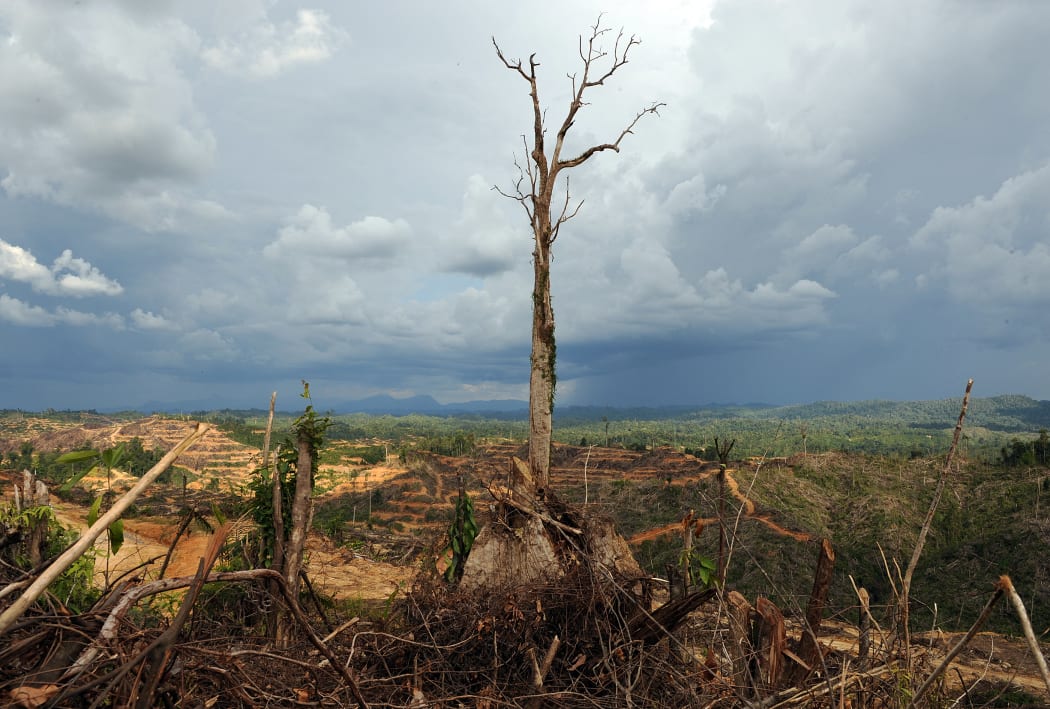
In a picture taken on August 19, 2009, a tree stands alone in a logged area prepared for plantation near Lapok in Malaysia's Sarawak State. Photo: Saeed Khan / AFP
“So not only were the plants, which they used for their medical supplies and food, but also the animals, which were part of their food supply as well, they were also gone.”
Foresting machinery had also uprooted the thin layer of soil, which washed down the rivers and caused blockages and flooding, she says.
“You couldn’t see through the water anymore, the fish were dying, and that was another of their protein sources cut off and it was very easy to see all this because you actually travelled across pristine rainforest into these deep forested areas.”
With the tribe essentially cut off from most of nature’s resources which sustained their livelihood, some resorted to feeding their infants diluted coca cola “thinking that this was something that was nutritional because it was a Western product”, she says.
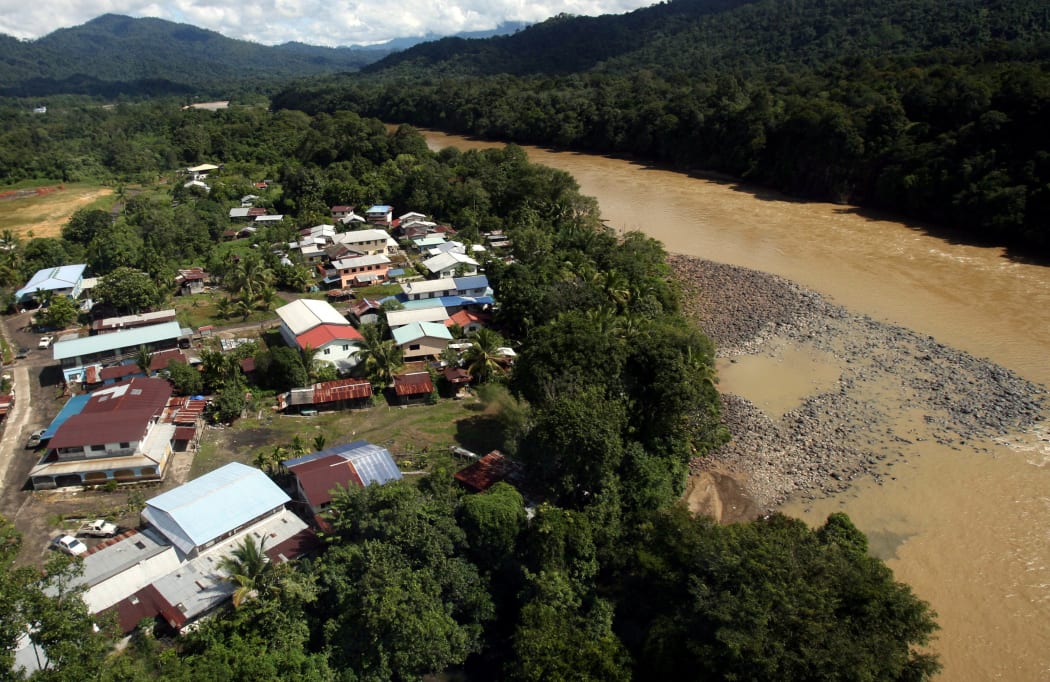
A Kenyah tribal settlement (left) lies next to a murky and silted Baram river, Miri interior, eastern Malaysian Borneo state of Sarawak, on 12 December 2007. Photo: AFP
But to make matters worse, the tribespeople – who don’t rely on money - had to get through all this terrain to get treatment for any illness or ailment at the ‘sick house’ in Sarawak’s Limbang.
“Anyone who couldn’t afford accommodation or treatment was placed in this shack.
“The floor covering consisted of broken bits of filthy lino, the outhouse or toilet facilities were almost non-existent, the pipes were rusted through so any water coming through was full of dirt and bits of metal, very unhygienic, and there was no privacy for them.”
A Penan woman who could barely walk and was suffering from TB, which is common among the tribe, would have had to travel back and forth to the shack to have her antibiotic medicine renewed.
“And she didn’t have the money to pay for a lift in a logging company truck,” McLaren says.
“So the disease got worse, she finally got back to the hospital and they’d removed a lot of her lung, and by the time I saw her that was all healed, but she had a pressure sore on her back, which was so big, you could honestly put your fist into it, I’d never seen anything like it in my life, it was totally septic.”
By this stage, the woman was already paralysed from the waist down, but McLaren helped get a nurse to see her and fundraised to get her to a hospital, but the woman died there.
Spurred to action by seeing what a lack of medical care was doing to the tribe, she started fundraising to upgrade the local clinic and help them better access food.
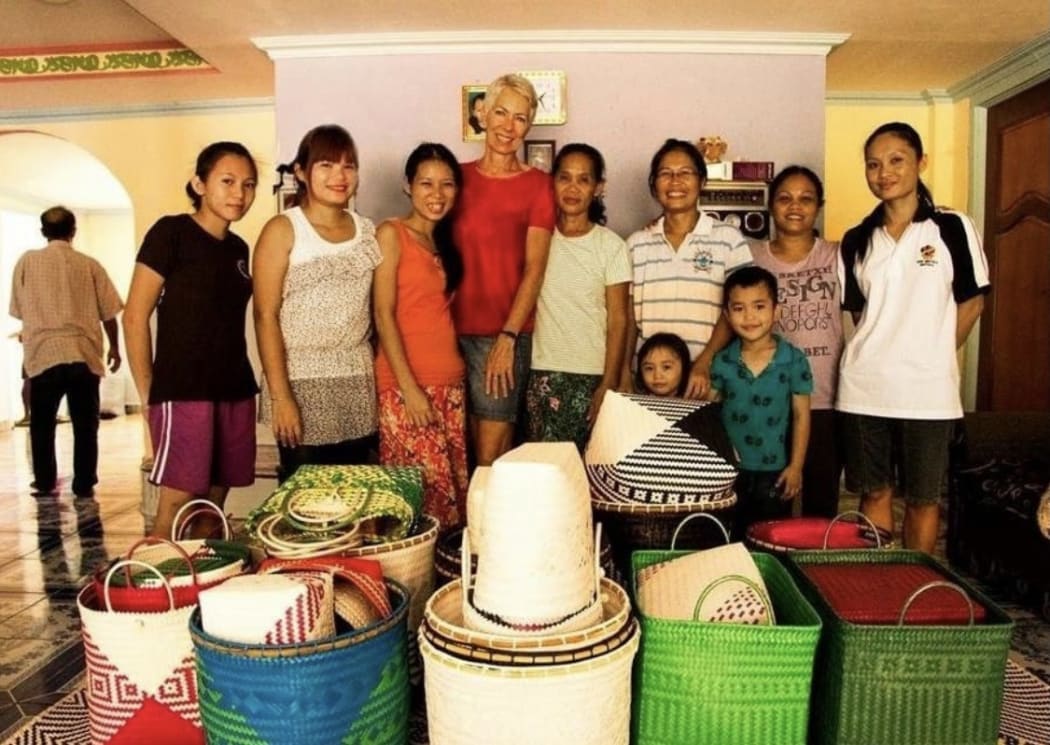
Jacky McLaren with the Penan tribe's woven products. Photo: Supplied
Then with the help to two Malay-speaking parents, she suggested to the tribe a trade venture where they could buy woven products and sell them on.
“It very quickly grew. It was amazing how quickly it took off. It was quite difficult then because I didn’t get much time to go across and they would be waiting or me with all these things and I only had a little car.”
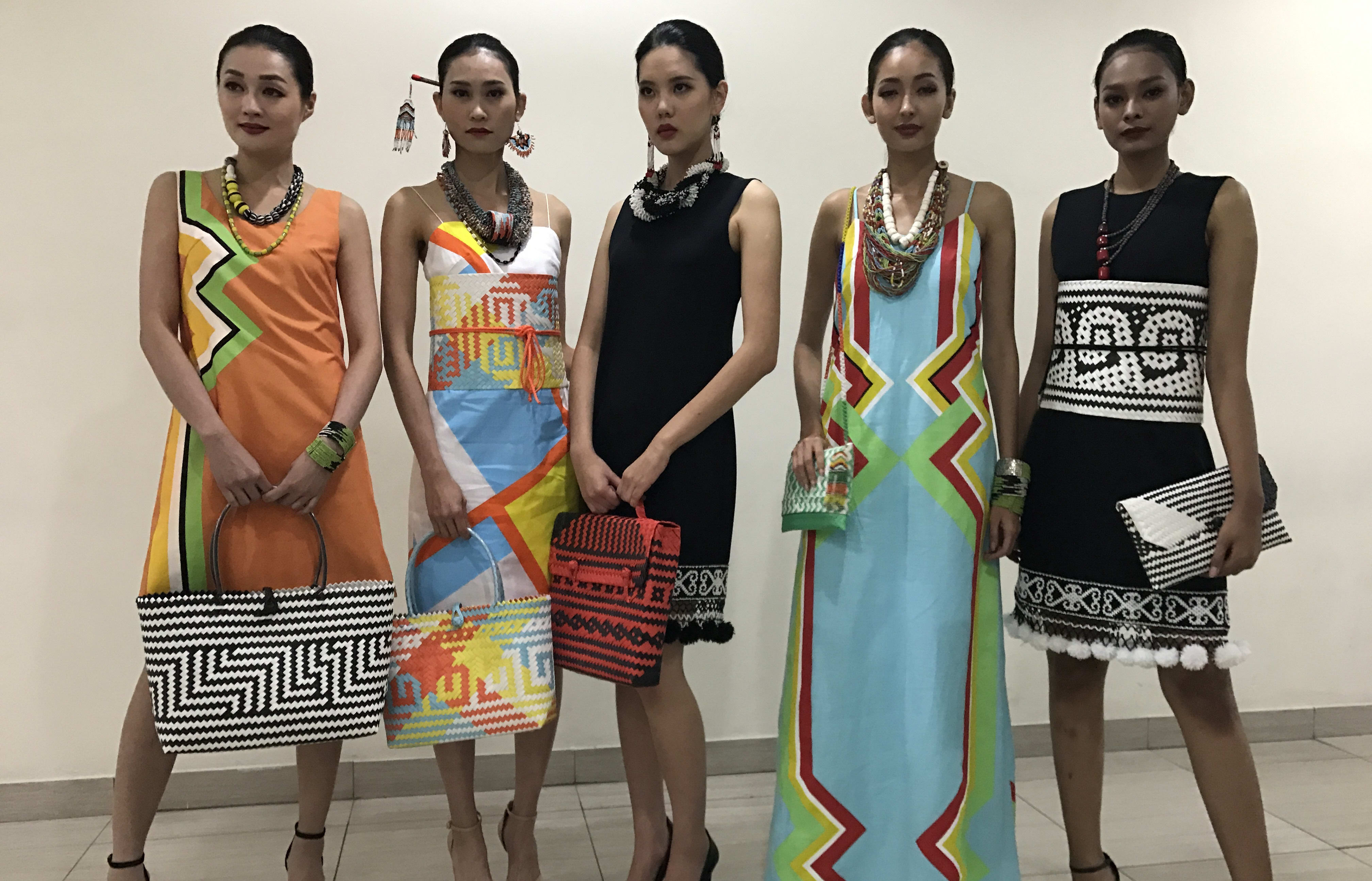
Models showcase some of the Penan tribe's woven products. Photo: Supplied
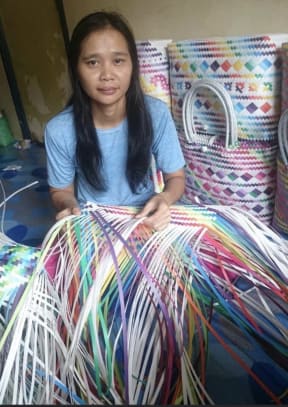
The Penan tribe uses polypropylene pallet strappings to create their woven products. Photo: Supplied
The Malay-speaking parents also took it to the next level by suggesting they use polypropylene pallet strapping, which was readily available in Limbang.
“They started to learn to weave in that and that gave us a product that we could ask for different designs and different commodities perhaps, like beach bags, laptop bags, table mats, all kinds of things, which they naturally would never have produced themselves but that we could sell more easily.”
Now back in New Zealand, McLaren continues this venture through her Borneo Bags business, where boxes packed with a variety of Penan-created items arrive.
“It’s a mixture of excitement and almost being overwhelmed. So many different items, some of which we can put on to the website but many of which are one-offs and I have to think of other ways of selling them.”
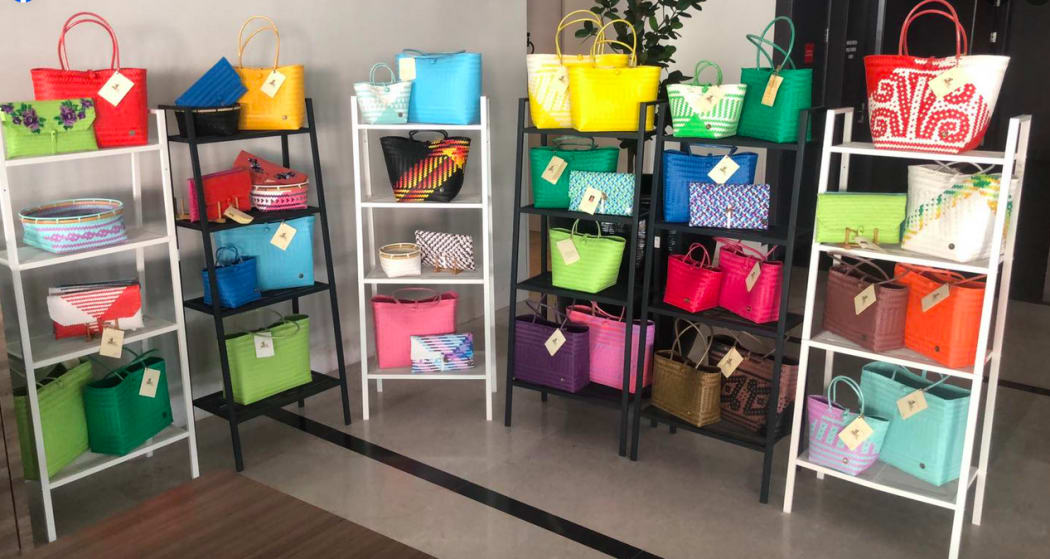
Photo: Supplied
In addition to the website and Mt Eden store, she says she is always looking for retailers who are willing to support them.
“And we try and make it profitable for them, because if it’s not of course we won’t really get much interest, but it seems to be taking off. And all I really need to do is get in the car with some of these bags and go door-knocking.”
McLaren stays in touch with the weavers by phone, which they connect to when they head into town, and she hopes to head back there at some point.
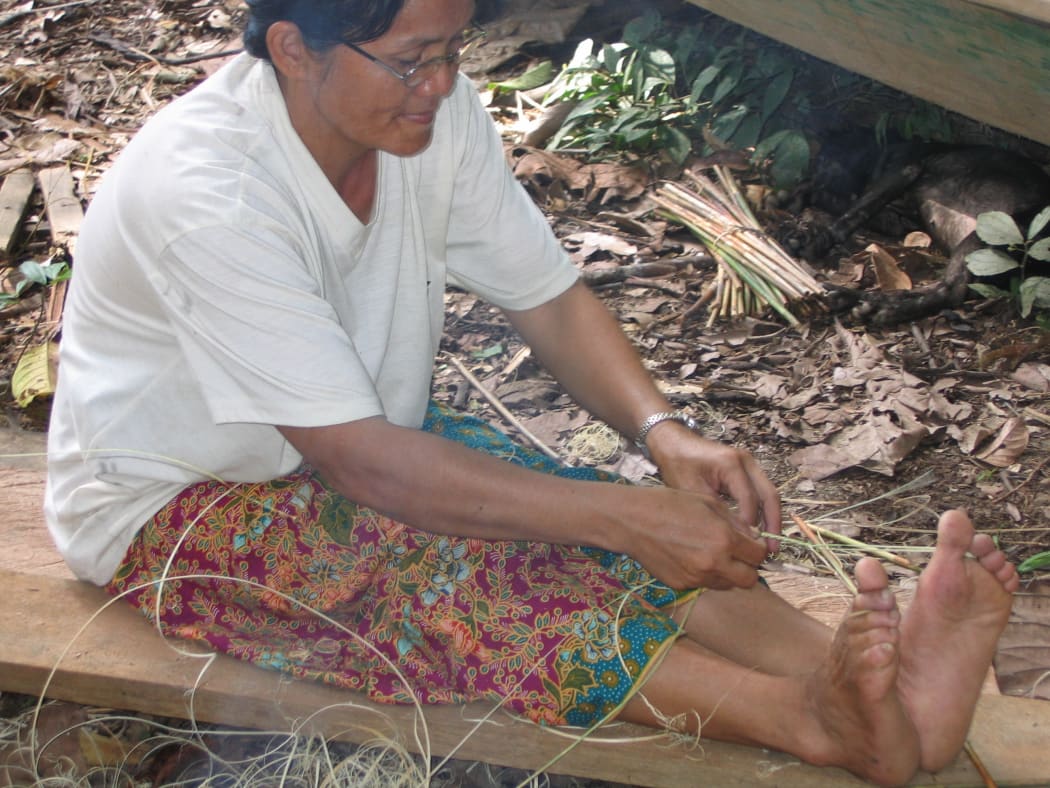
A person from the Penan tribe starting to weave an item. Photo: Supplied

